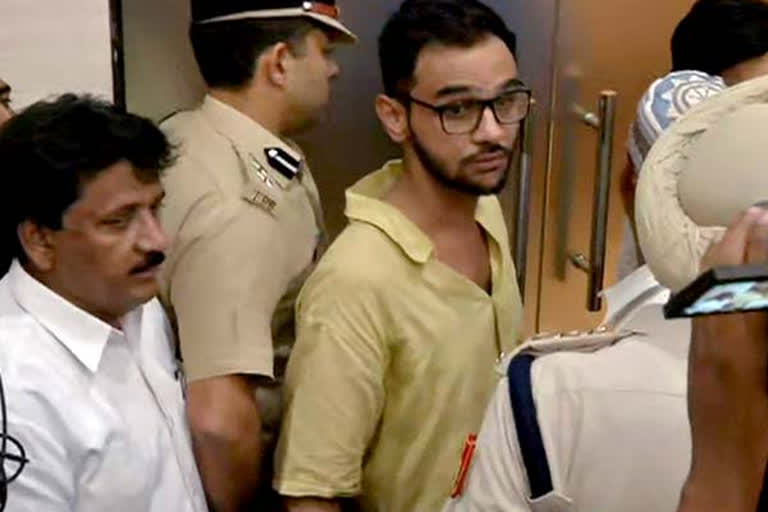New Delhi: The Delhi High Court Wednesday said the veracity of witnesses' statements was not required to be tested at the stage of considering the bail plea of former JNU student Umar Khalid, arrested in a UAPA case related to the alleged conspiracy behind the riots here in February 2020. The high court also said it cannot hold a mini-trial at the stage of considering the bail plea.
In so far as UAPA is concerned, we have to look at the material on the record without testing the veracity of that material. That material can only be contradicted and rebutted at the time of trial. You can't say if the statement says three of them (accused) met, then we should test it by holding a mini-trial. You cannot say that, a bench of Justices Siddharth Mridul and Rajnish Bhatnagar said. To this, Khalid's counsel said he was not at all asking the court to conduct a mini-trial at this stage.
The bench was hearing Khalid's plea challenging a trial court's order which had on March 24 dismissed his bail application in the case. When the bench said, this is not the stage at which you can test the veracity of a statement. (Zahoor Ahmad Shah) Watali judgement does not support your argument that at this stage we can dissect it any further, the counsel responded, I am not asking you to dissect. The court said it will hear further arguments on the bail plea on May 30. Khalid's counsel had earlier argued that he has been in jail for the last two years based on a protected witness' hearsay statement which has no corroboration.
Also read: Delhi riots 2020: CAA protests against unjust law; not against Sovereign, says Umar Khalid in HC
The counsel had contended that the protests against the Citizenship Amendment Act were against an unjust law and it was in no way an act against the Sovereign and that several of the acts alleged or incidents cited against him by the police were not even qualifying as terror' and the protestors were not perpetuating violence as contemplated under the UAPA. The high court had earlier questioned Khalid for using certain objectionable words against Prime Minister Narendra Modi in his speech in Amravati on February 21, 2020.
Khalid was arrested on September 13, 2020, and has been in custody since then. Khalid, Sharjeel Imam, and several others have been booked under the anti-terror law Unlawful Activities (Prevention) Act (UAPA) and provisions of the Indian Penal Code in the case for allegedly being the "masterminds" of the February 2020 riots, which had left 53 people dead and over 700 injured. The violence had erupted during the protests against the Citizenship Amendment Act and the National Register of Citizens.
The trial court had dismissed the bail petitions by Khalid on March 24. Khalid has argued in his bail plea before the high court that his speech, which forms the basis for the allegations against him, did not call for violence, was not contemporaneously uploaded on YouTube, was not widely circulated, and that the allegation of commission of the offence of section 124A (sedition) IPC or any reaction in Delhi on account of the speech was unfounded, unlikely and more than remote.
The Delhi Police, represented by Special Public Prosecutor Amit Prasad, has opposed the bail plea, saying the narratives sought to be created by Khalid cannot be looked into as his defence at this stage and the trial court refused to release him by a well-reasoned order which suffers from no illegality. Besides Khalid, activist Khalid Saifi, JNU students Natasha Narwal and Devangana Kalita, Jamia Coordination Committee members Safoora Zargar, former AAP councillor Tahir Hussain and several others have also been booked under the stringent law in the case. (PTI)



